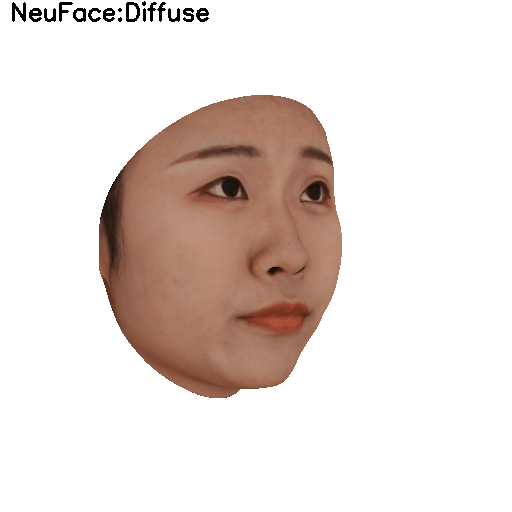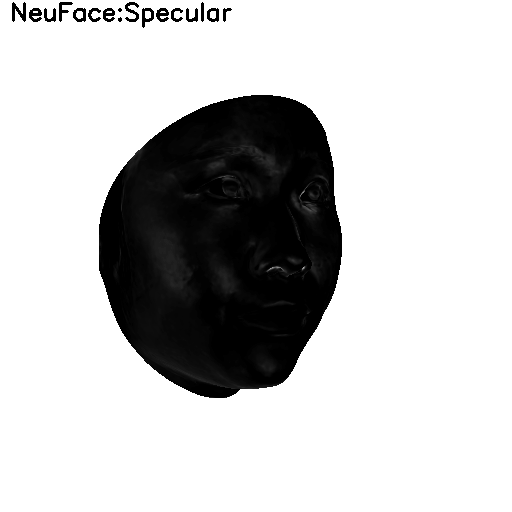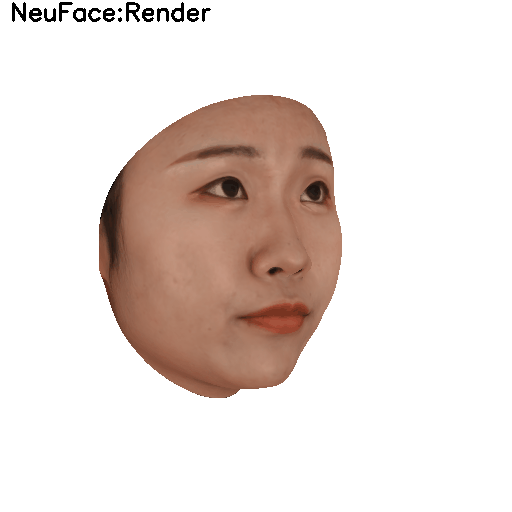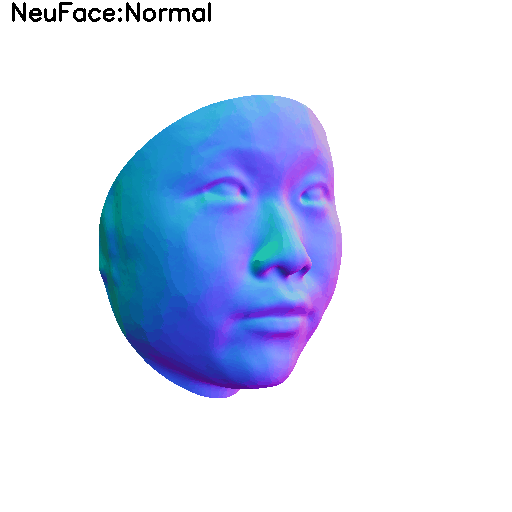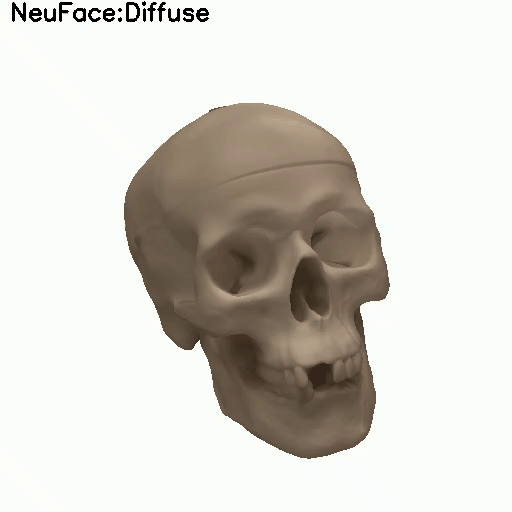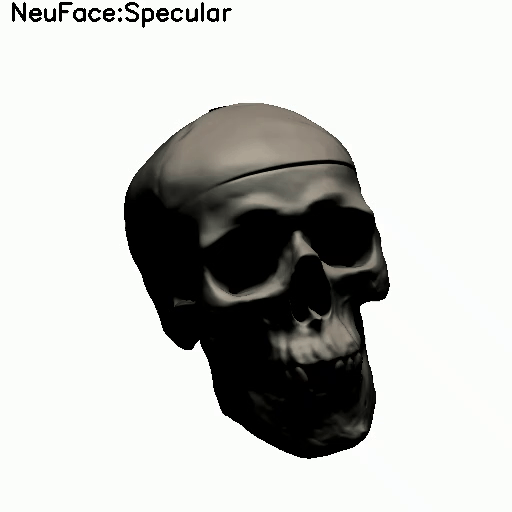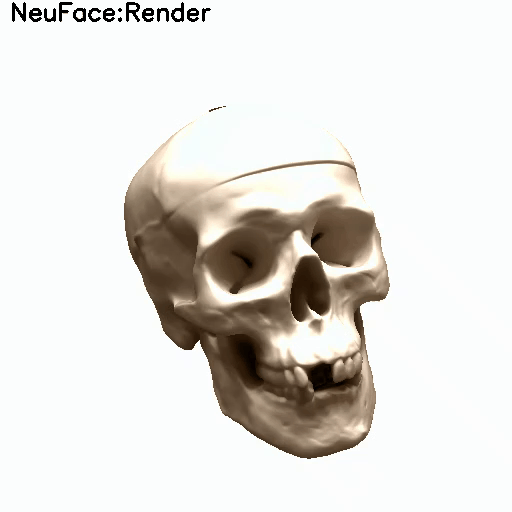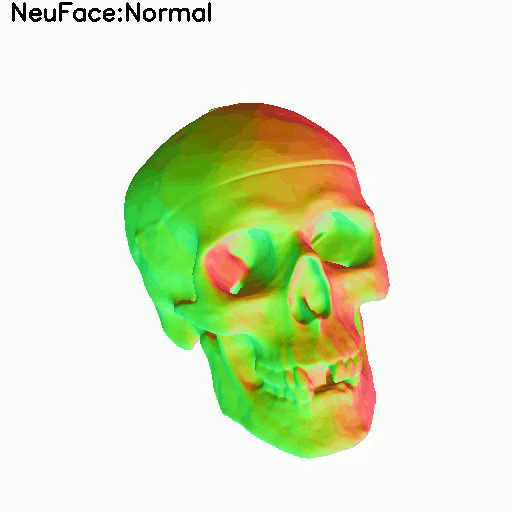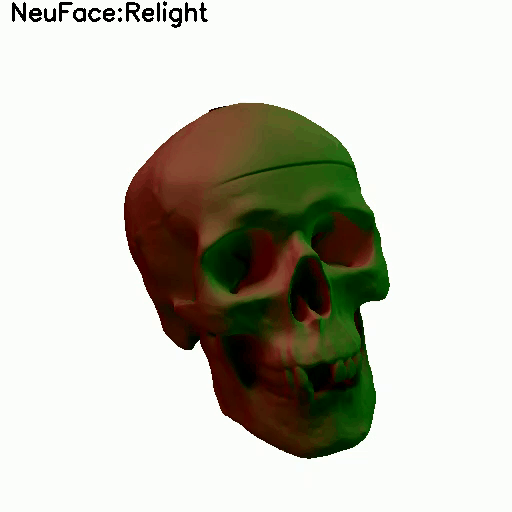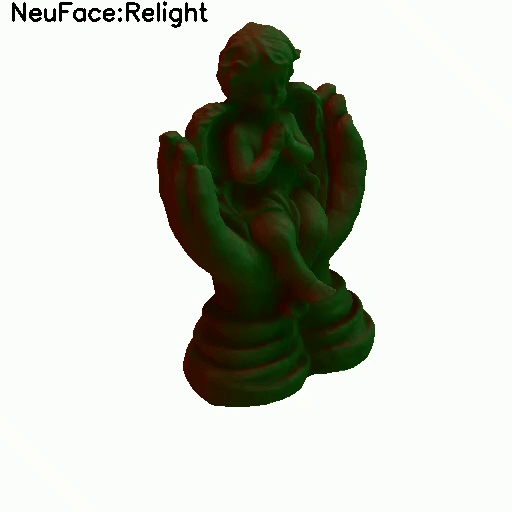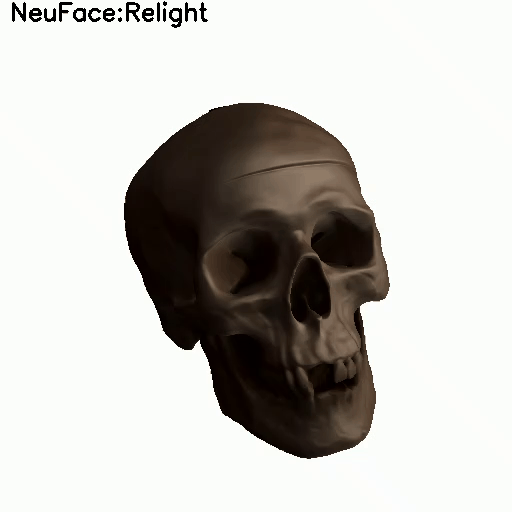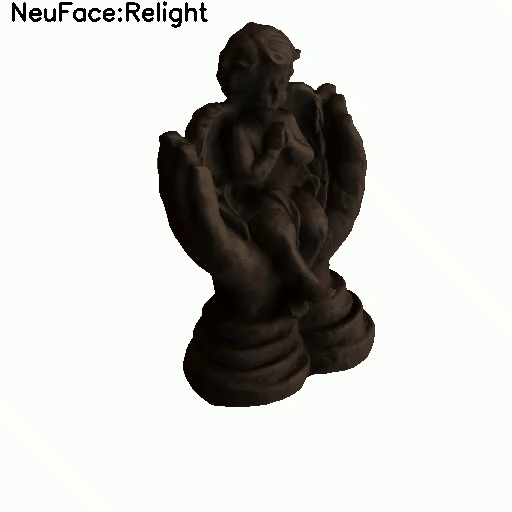Mingwu Zheng, Haiyu Zhang, Hongyu Yang, Di Huang
Official code for CVPR 2023 paper NeuFace: Realistic 3D Neural Face Rendering from Multi-view Images.
The paper presents a novel 3D face rendering model, namely NeuFace, to learn accurate and physically-meaningful underlying 3D representations by neural rendering techniques.
NeuFace naturally incorporates low-rank neural BRDFs into physically based rendering, allowing it to capture facial geometry and complex appearance properties collaboratively, which enhances its robustness against specular reflections. Additionally, NeuFace exhibits commendable generalization abilities when applied to common objects.
The code is compatible with python 3.6.13 and pytorch 1.9.1.
To create an anaconda environment named neuface with the required dependencies, run:
conda create -n neuface python==3.6.13
conda activate neuface
pip install -r requirement.txt
For human face, We use data from FaceScape Dataset to evaluate our model. The detailed 3D mesh is used to generate a mask of each image's face area. The ImFace model can be download from pretrained-model.
- Mesh preprocess To obtain the preprocessed mesh, run:
python data_preprocess/cut_mesh.py
Please make sure the path in the file is correct.
- Image and mask rendering Once you have the preprocessed mesh, you can render the mask and image by running:
python data_preprocess/render_mask.py
Please make sure the path in the file is correct.
For common objects, the DTU dataset is used for model evaluation.
To train NeuFace on Facescape dataset, run:
python scripts/train_pl.py
Make sure that the variables in your config file are correct. Results can be found in {out_dir}/{expname}.
The trained model can be downloaded from (FaceScape's author allows to release the trained model):
| Trained Model | Description |
|---|---|
| NeuFace_1_id_2_exp | train on 1 id with 2 exp (smile) of Facescape dataset |
If you want to use our trained model, please place the downloaded file in exp_pl/ckpt/{trained_model}.
To evaluate the novel view metrics, run:
python scripts/eval_pl.py --ckpt [ckpt_path] --out_dir [our_dir]
Results can be found in {our_dir}/test/{expname}.
To train NeuFace on DTU dataset, run:
cd common_object
python training/exp_runner.py --conf ./confs/dtu_fixed_cameras.conf --scan_id [scan_id] --gpu [GPU_ID]
Make sure that [dataset.data_dir] in your config file is correct. The results can be found in common_object/exps/{train.expname}/{timestamp}. The trained model can be downloaded from:
| Trained Model | Description |
|---|---|
| NeuFace_DTU_65 | train on 65 scan of DTU dataset |
| NeuFace_DTU_110 | train on 110 scan of DTU dataset |
| NeuFace_DTU_118 | train on 118 scan of DTU dataset |
If you want to use our trained model, please place the downloaded file in common_object/exps/{trained_model}.
To evaluate the training view metrics, run:
cd common_object
python evaluation/eval.py --conf ./confs/dtu_fixed_cameras.conf --scan_id [SCAN_ID] --eval_rendering --gpu [GPU_INDEX]
Results can be found in common_object/evals/{train.expname}/rendering.
If you find our work useful in your research, please consider citing:
@inproceedings{zheng2023neuface,
title={NeuFace: Realistic 3D Neural Face Rendering from Multi-view Images},
author={Zheng, Mingwu and Zhang Haiyu and Yang, Hongyu and Huang, Di},
booktitle={Proceedings of the IEEE/CVF Conference on Computer Vision and Pattern Recognition},
year={2023}
}
